
The Canadian Student Journal Forum (SJF) is an annual event organized by university libraries, with a focus on bringing student journals together and sharing publishing best practices. The Public Knowledge Project (PKP) had the pleasure of being among supporters of the event in both 2022 and 2023. Check out the SJF 2023 ‘Roundup’ and learn how PKP’s Open Journal Systems (OJS) facilitates student-led journals.
Why is an event like the SJF needed in Canada?
Students and university libraries have been working together to publish student journals in Canada for longer than many might guess. For example, the student-run University of Toronto Medical Journal (UTMJ), established in 1923, is celebrating it’s centennial volume.
Yet, as Mariya Maistrovskaya (Digital Publishing Librarian, University of Toronto Libraries) and Sarah Severson (Digital Projects Librarian, University of Alberta) noted in their overview of the “Student Journal Forum: From a local event to a Canada-wide movement” (2022), the journals, services, and supports were not well connected at the time of the SJF’s launch.
Snapshot of SJF evolution
| 2015 | |
| 2020 | |
| 2021 | |
| 2022 | |
| 2023 |
Canadian Student Journal Forum Roundup
The first day of the SJF was filled with Skills Sessions on project management, diversity, equity and inclusion (DEI), effective peer review, and the previously mentioned discoverability session. The five resulting Skills Session slides and handouts (if applicable) are openly available.
There were twelve student journals represented in four sessions across the last two days of student presentations. The session themes were (1) Equity and Inclusion in Journal Publishing, (2) Managing Your Journal, (3) Working With Your Editorial Team – Training and Engagement, and (4) Engaging with Communities Outside Your Journal Team. Moreover, there were nine experts on two panels for students interested in learning from editors in the field.
As pictured below, 100% of the journals represented at the Forum are publishing their articles, issues, and other items as open access. Student journals tend to operate on a Diamond Open Access model, where there are no article processing fees (APCs) or access paywalls.
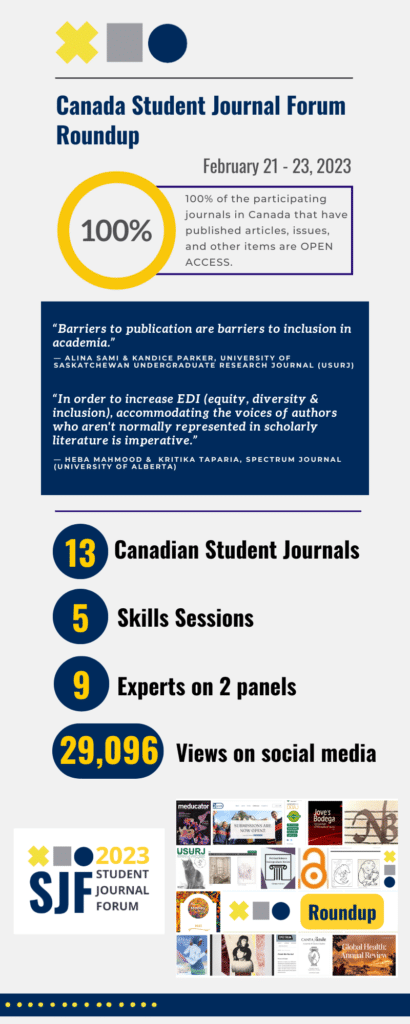
Some of the most powerful quotes coming out of the Forum were from students concerned with barriers to publishing, equity, diversity and inclusion. For example, many of the journal submission formats encourage multimodal publishing in less traditional formats to make room for typically underrepresented voices in scholarship.
As many in the scholarly communications and open access community are still on twitter (granted many have also moved elsewhere), the SJF organizing committee and PKP joined to create the PKP / Canada SJF Twitter Takeover event (#SJF23), which saw the release of these powerful quotes, as well as showcases and takeaways for each journal, skills session, and expert panel in the form of twitter “threads”.
The content was viewed over 29,000 times, with 10869 of those views coming in from users viewing PKP’s channel (@pkp), and 18,227 views coming from users viewing the SJF’s channel (@CanadaSJF).
Are you interested in the full threads with each session’s takeaways? Search #SJF23 or check @CanadaSJF on twitter.
Example Student Journals: SJF 2023 Participants
Check out the gallery below for a collection of SJF 2023 social media samples by PKP showcasing the participating student-led journals. Click on the image to access the journal website.
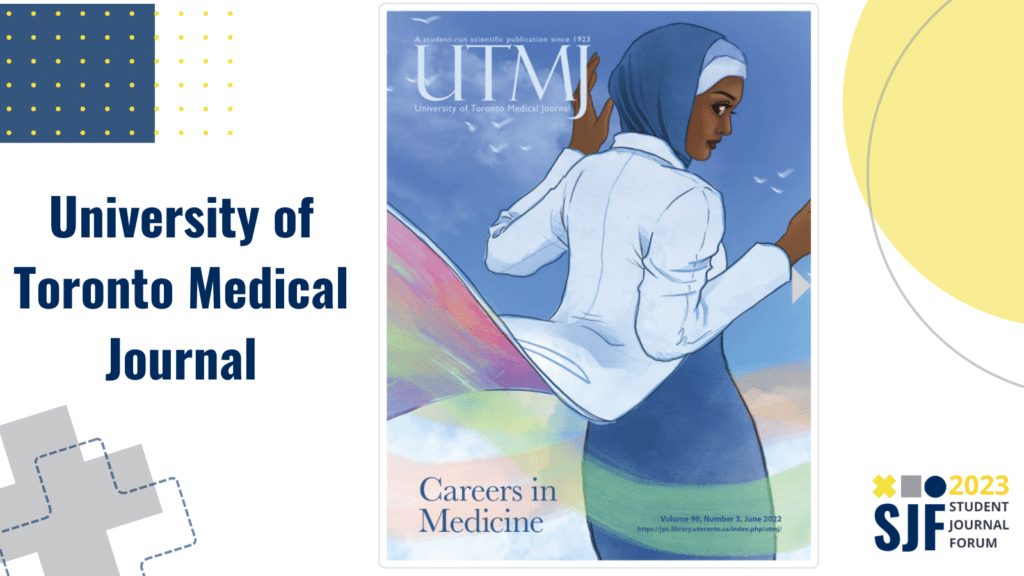
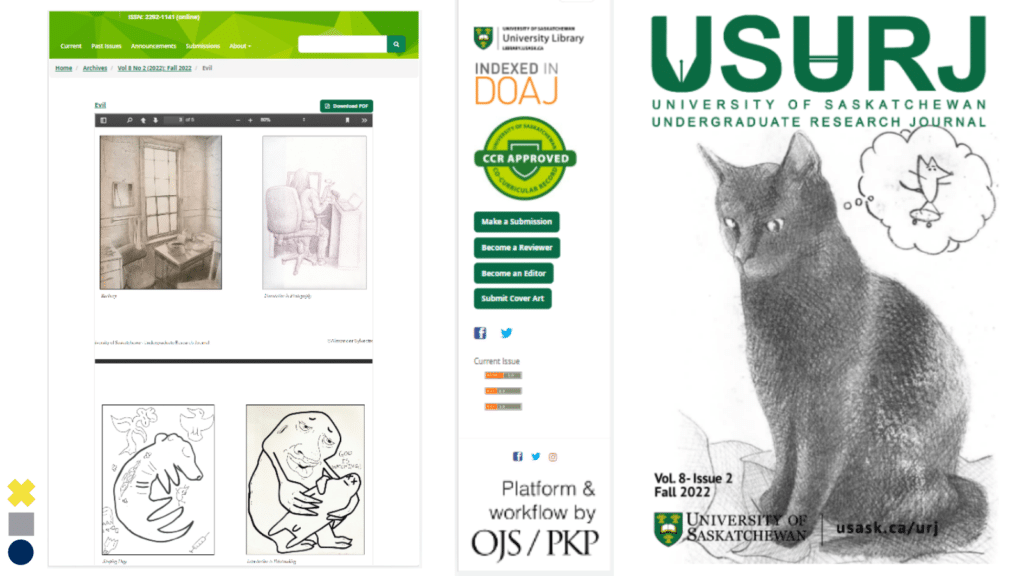
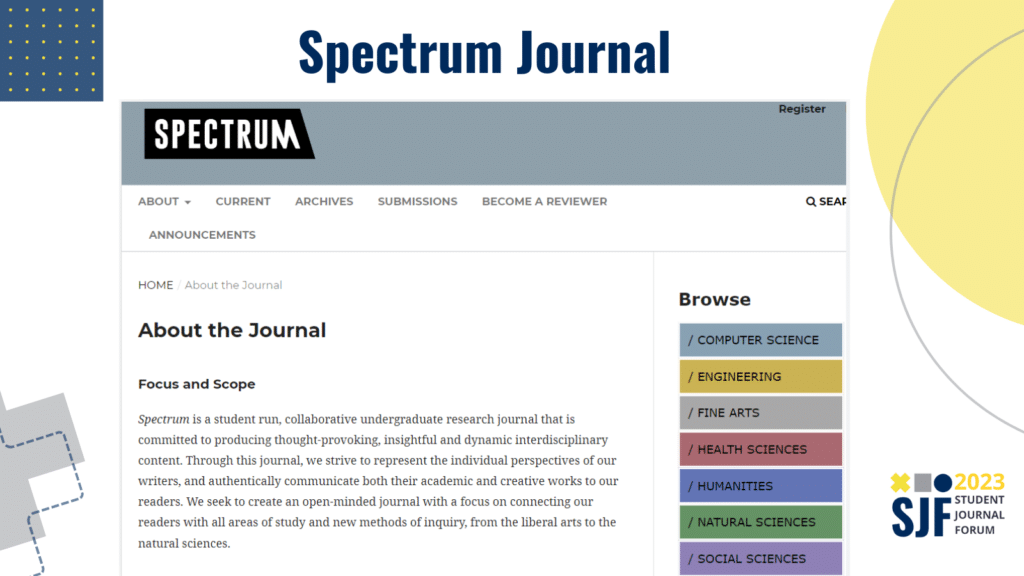
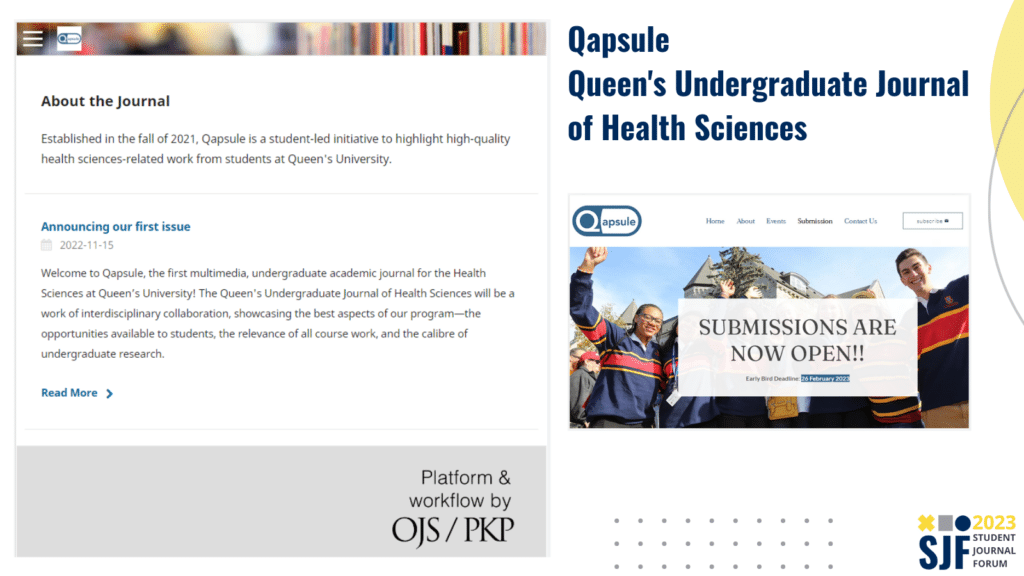
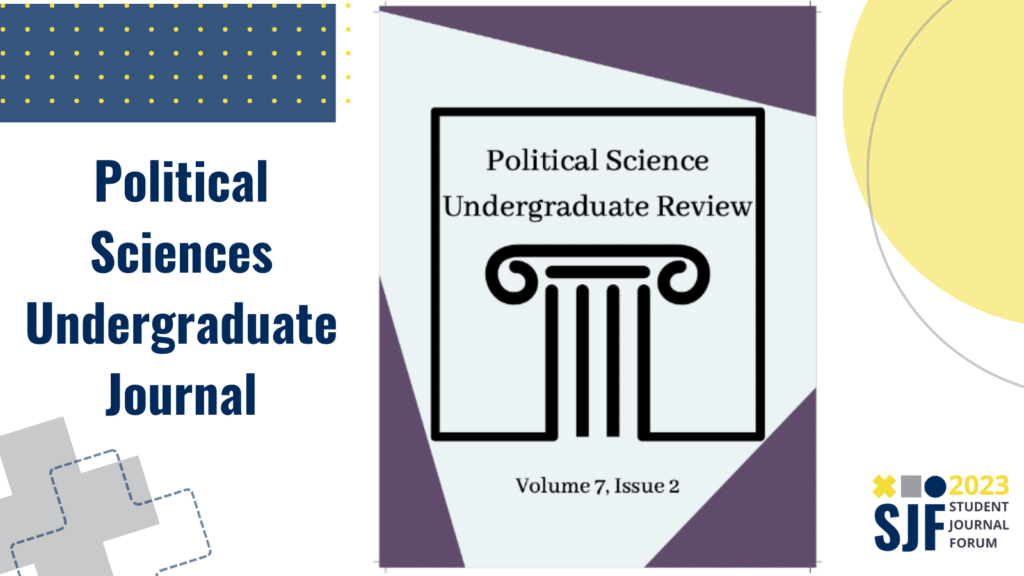
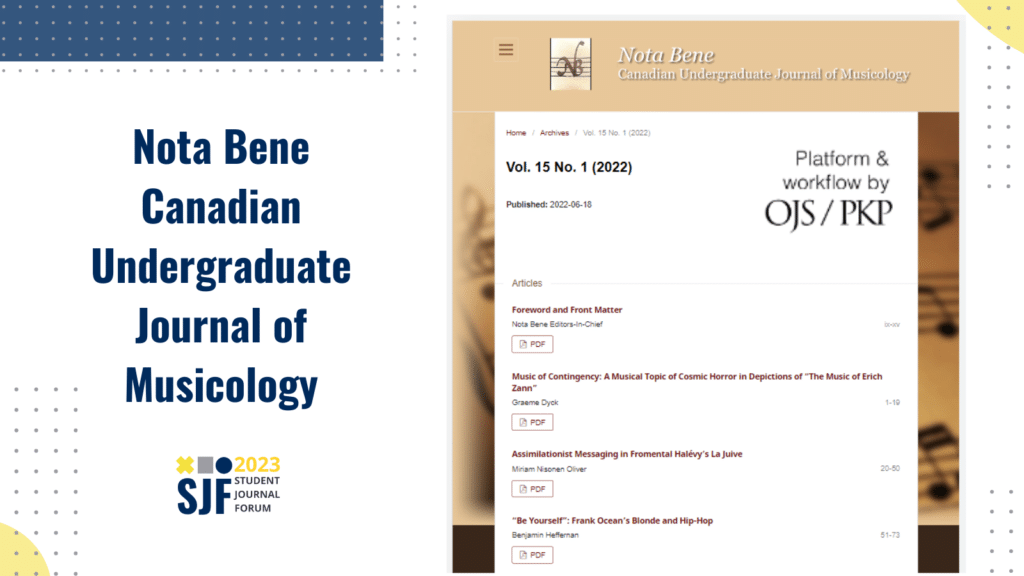
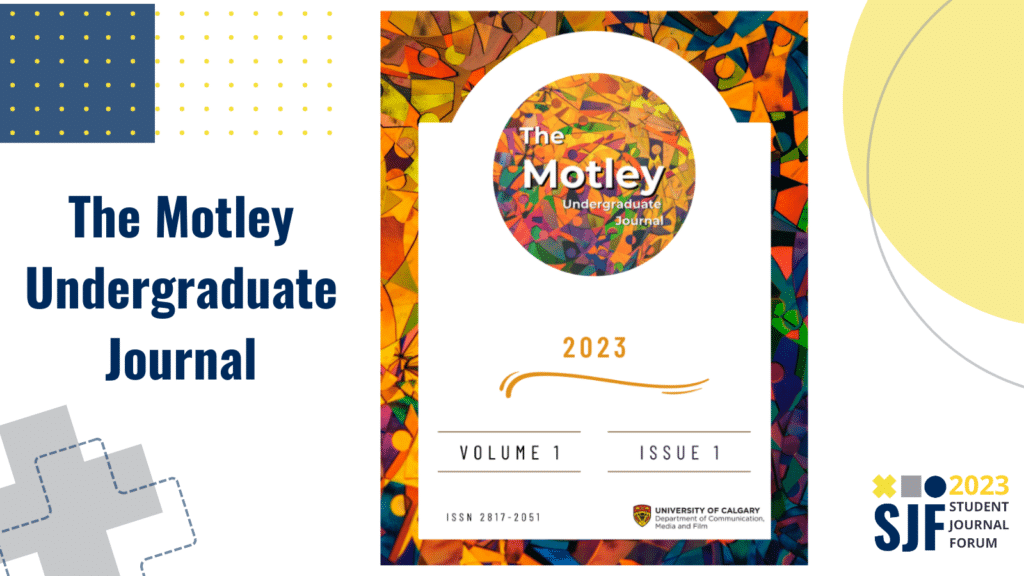
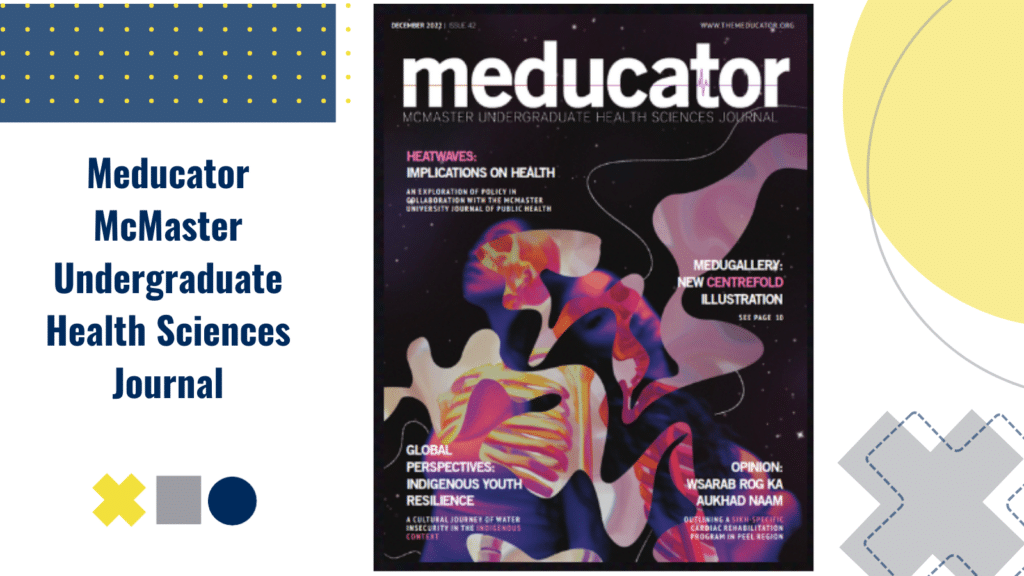
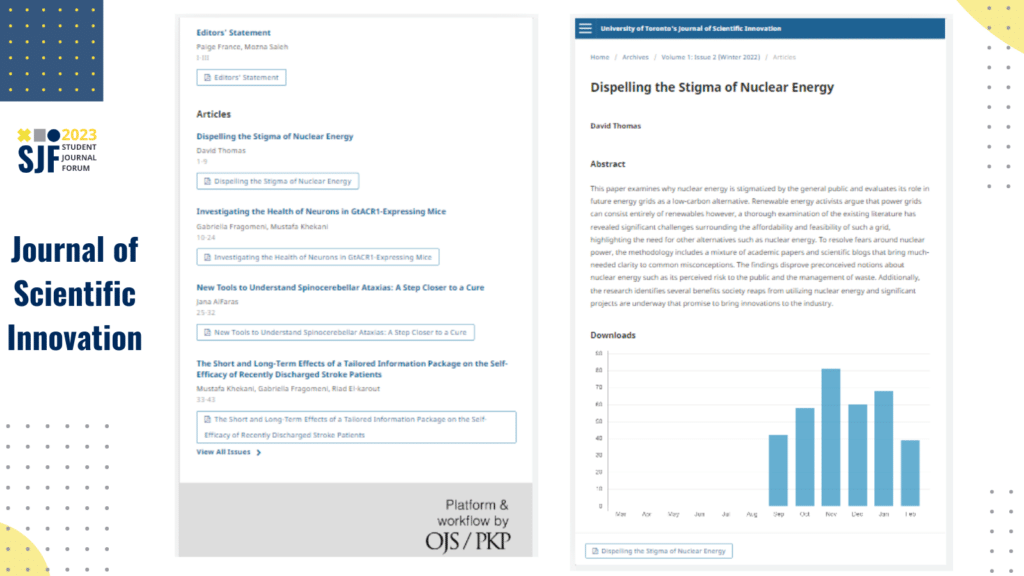
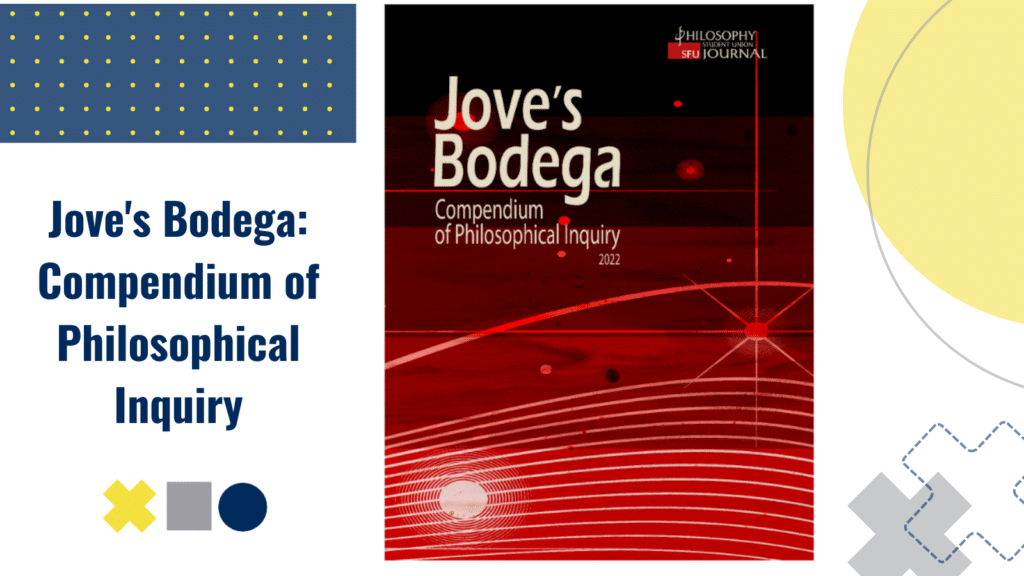
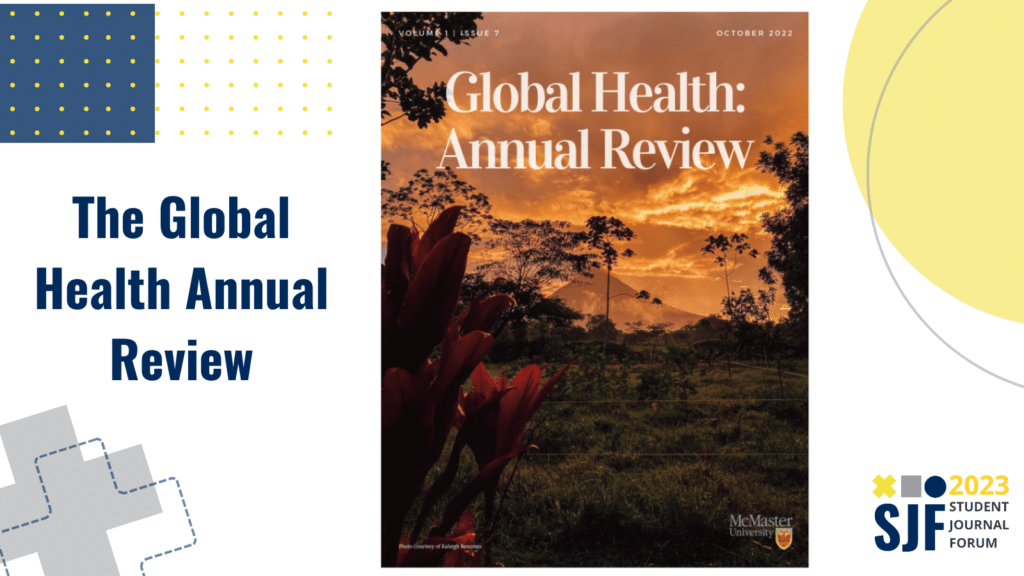
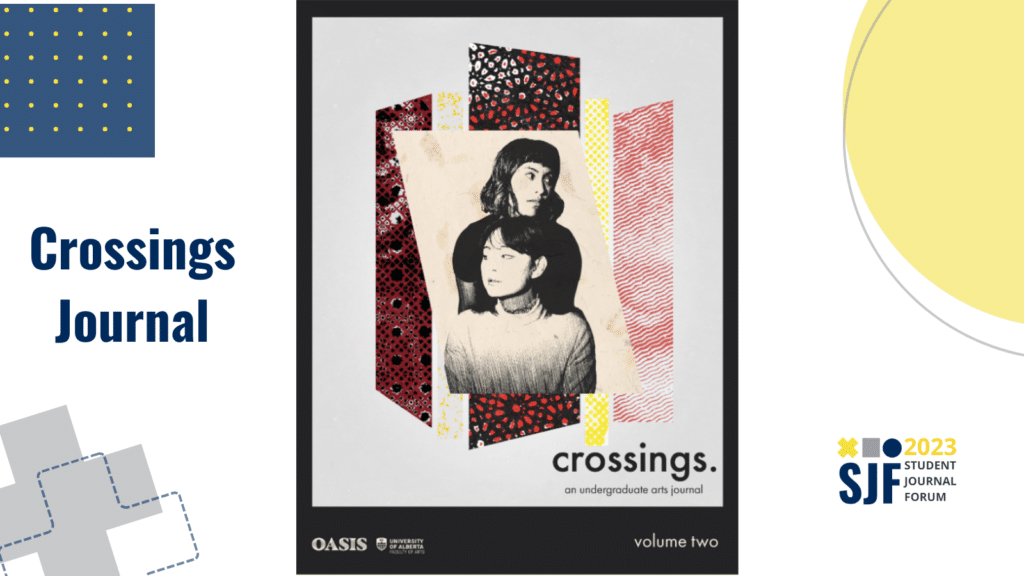
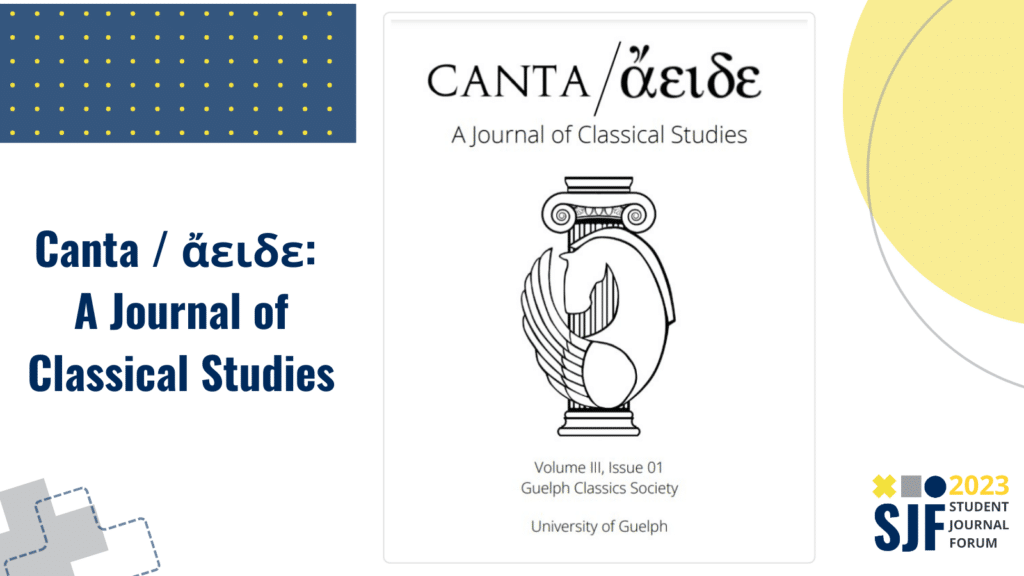

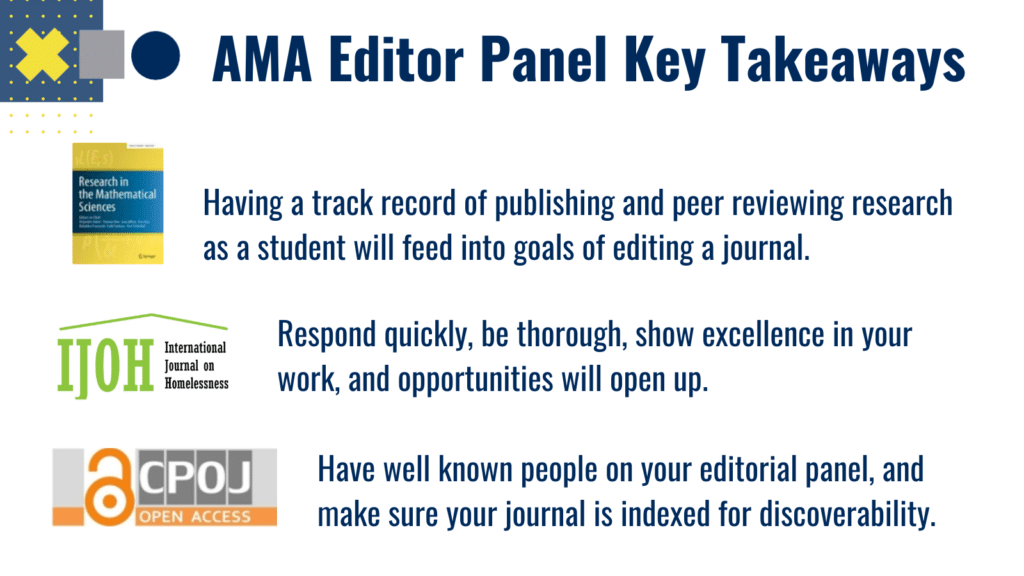
How does PKP’s Open Journal Systems (OJS) facilitate student journals?
This year, during the Skills Sessions on Day 1 of the SJF, Mariya Maistrovskaya, who is a Publication Support Specialist with PKP in addition to her role at U of T, presented “Tips and tricks to make your journal content discoverable online”. The presentation was relevant for a variety of journals using different platforms to publish; however, many of the students who are, or have been involved with the SJF in the past, publish their journals using OJS.
According to Mariya’s recent analysis of almost 200 Canadian student journals (pictured below), 61% of student journals in Canada are using OJS, with the next most frequently used platform being WordPress, used by 17% of participants. Twelve other platforms, such as SquareSpace and Wix, are used by the remaining 22% of participants.
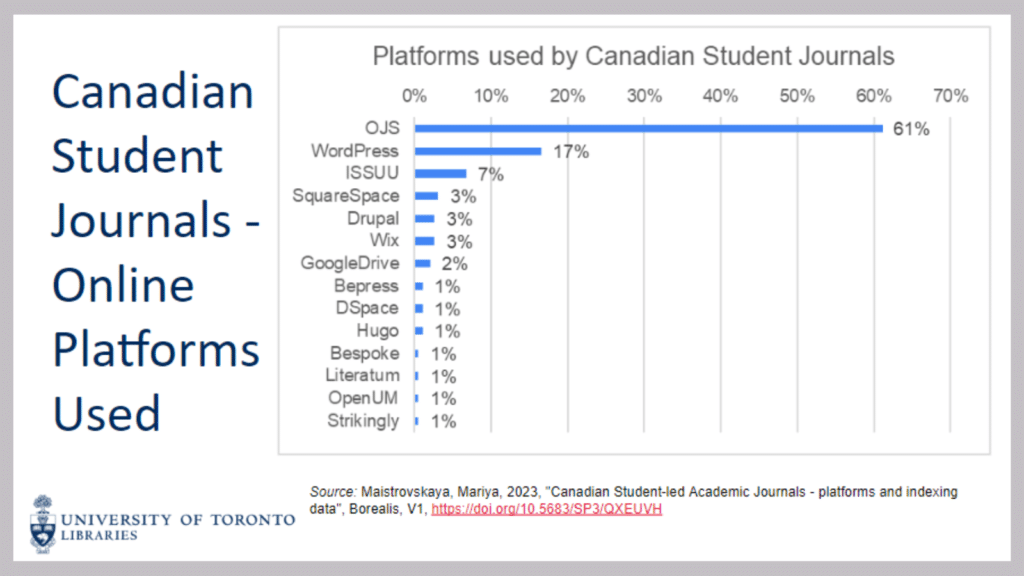
During her presentation of these figures, Mariya emphasized that “your web platform can make or break your discoverability.” Many of the students who are involved with student journals also care about publishing on a deeper level, that is, they care about opening up access to knowledge. The more a journal is indexed in openly available databases, the more discoverable it is.
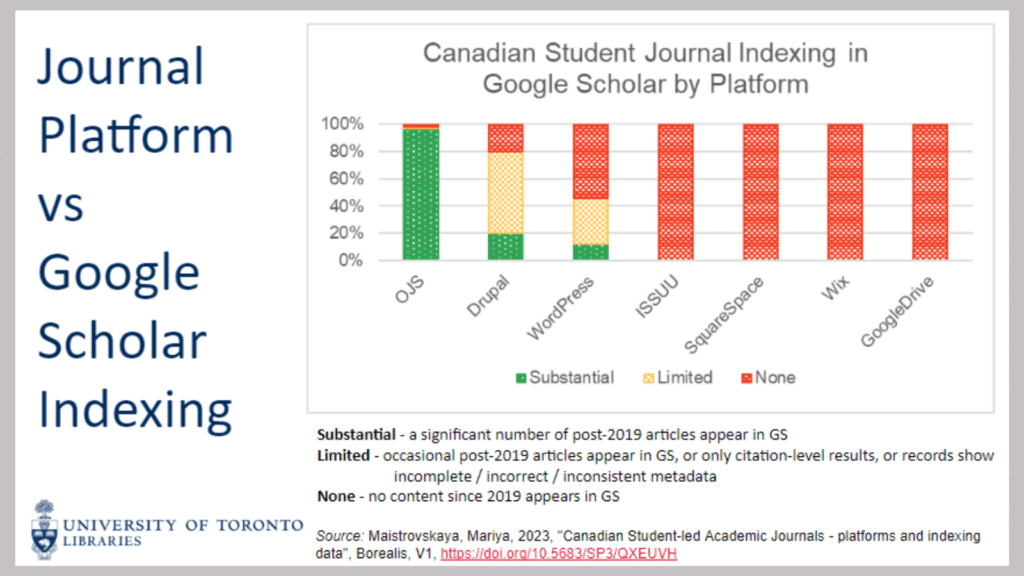
Mariya’s analysis also showed that of the journals using OJS to publish, more than 90% of their articles are indexed in Google Scholar (GS). Of the journals using Drupal to publish, about 20% of their articles are indexed by GS, while of those using WordPress, about 10% of their articles are indexed by GS. None of the articles using Issuu Inc., SquareSpace, Wix or Google Drive were indexed by GS at the time of the analysis.
In essence, university libraries using OJS can help open up access to knowledge. University libraries as publishers in Canada and around the world, is not new, but it is becoming more widely known. Events like the SJF encourage students to develop an early understanding of the scholarly publishing and communications ecosystem, as well as the impact of free and open source software (FOSS) like OJS on open access and discoverability.
Mariya’s presentation, including the slides pictured above, as well as many resources to help make student journals more discoverable, are openly available online. The dataset is available for download from the U of T’s project, Borealis: The Canadian Dataverse Repository.
Additional Resources:
- Getting Started in Library Publishing
- Documentation Hub (Publishing Resources)
- Student Journal Tool Kit
- PKP School
- PKP Hosting and Other Services
- Society for Scholarly Publishing Professional Skills Map (career resource)
- National Council of Undergraduate Academia – interest form for undergraduate journals
